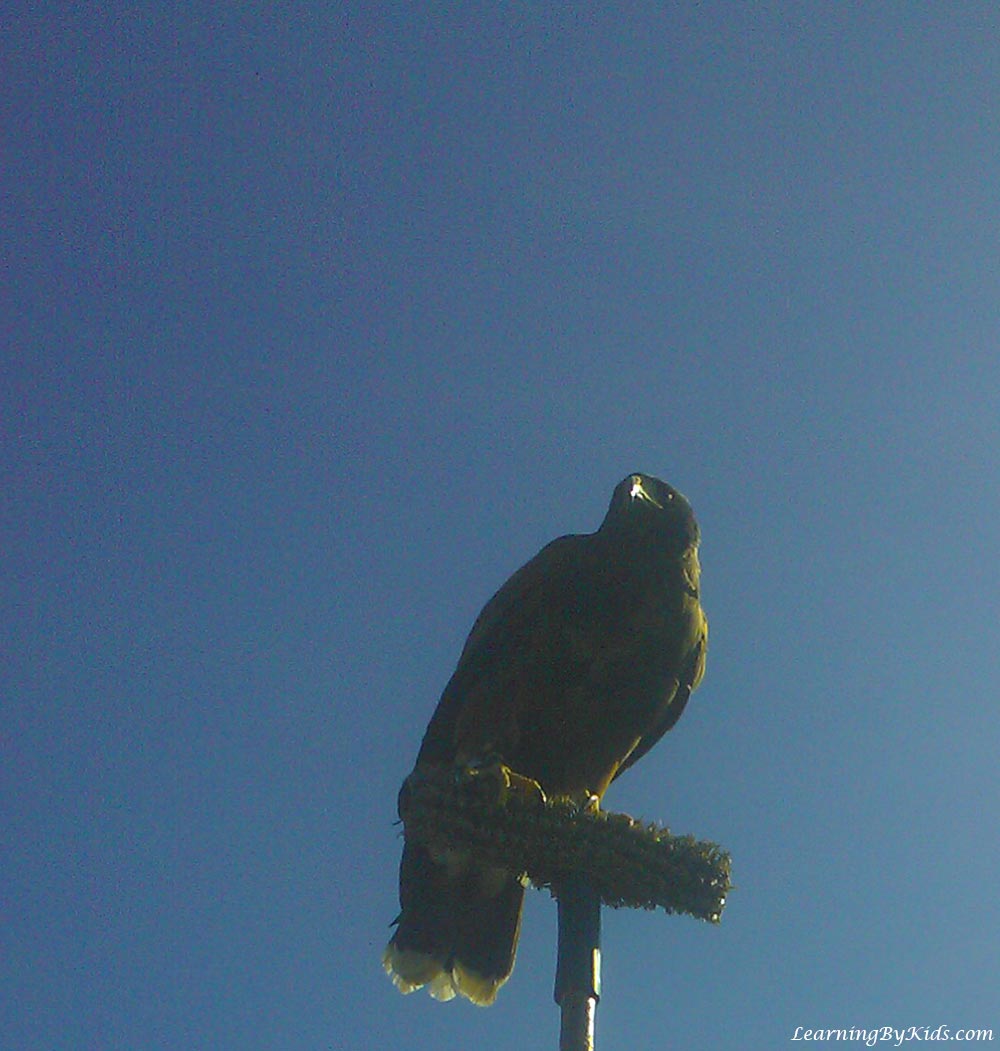Falconry is one of the oldest sports around. Throughout history it was pursued by nobles, kings, and emperors — like the Holy Roman Emperor Frederick II (1194 – 1250). Wanting to learn more about this exciting pastime, we visited Sky Falconry in Alpine, California.
Falconry is sometimes called hawking. That’s because this sport is in fact a hunting tradition that employs the cooperation of raptors or birds of prey — with the most notable being falcons, hawks, even eagles.
To be a falconer in the United States, one needs intensive study and a permit. A beginning falconer is called an apprentice. After two years of training one then becomes a general falconer. A master falconer, meanwhile, needs a minimum of seven years’ training. There’s a minimum age for being an apprentice because one has to take a test administered by your local branch of the Fish and Wildlife Service. So, during our first day of exposure to falconry we mainly observed.
We were very respectful of the birds. We learned that the birds have to be cared for. They can get sick from avian flu or other maladies. Each bird has its own personality; its training therefore needs to take this into account so that there is a great rapport between the bird and the falconer. Falconry is not just about the natural history of the bird. Rather, it also involves being a good steward of the bird’s health and well-being, its housing, its hunting techniques, and learning about the governing laws associated with caring for these raptors.
The folks at Sky Falconry were wonderful with their education and outreach program. While we did not get to don the glove because we’re still too young, nonetheless we still got to see the beauty of these birds in action. Here’s falconer Kirk Sellinger helping me get a good close-up of one of the birds.
The earliest mention of falconry in historical records are attributed to the Chinese, who were hunting with raptors as far back as 2205 BC. Interestingly enough, the first organized falconry club established in the United States was the Peregrine Club at the University of Pennsylvania, thanks to Alva Nye. That took place back in the early 1930s. Today, falconry is still practiced around the world, although there are some countries where it is banned. In the United States, contemporary falconry is regulated to ensure protection of the birds.
Falconry is highly interconnected with bird conservation efforts. After all, while enthusiasts strive to preserve the ancient art of falconry, it also becomes important to preserve the natural habitats of these birds as well.







